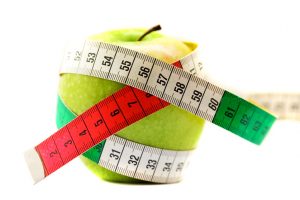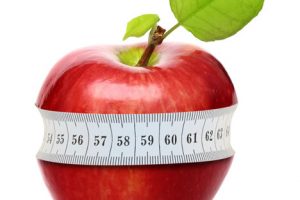How many calories to lose weight is a popular question but to be honest it does not come with a straight forward answer. I’m sure a lot of you may have been lost from time to time in the endless calorie calculations or taken a wild guess trying to lose weight. Nevertheless do not despair. Below I have summarised the main things you need to know when trying to calculate how many calories to consume in order to lose weight.
For a start you will find a bit of theory. You may think it is a lot of blabbing but trust me; it will help you understand the whole calorie calculation and weight loss matter.
Calories and energy
Calories are used to measure the body’s energy. This energy comes from food we consume and our body uses it to carry out its processes. Think of the body as a factory. It produces things like movement, repairs tissues, removes waste, thinks and thousands more. To do all that it needs energy.
What we eat has an energy value that is why you see its calorific value in the package. Any extra energy which comes in and is not needed gets stored in the tissues for later use. The body stores this energy in the form of sugar (glycogen), some protein and fat. The body is limited on how much glycogen it will store and protein storage is a bit complicated to even try to explain here. So the majority goes into fat.
If there is a lot of extra energy coming in constantly then the storage becomes bigger and bigger as you may have noticed.
Weight Loss
What is complicated in terms of weight loss is the fact that the body is a complicated factory. There are a number of factors which affect both the storage and use of the calories.
In simple mathematics it goes like this:
Weight = calories in + calories out ± other body factors
Calories in: It is all the food and drinks we consume.
Calories out:
- It is all the calories we use to stay alive (basal metabolic rate),
- All the calories we use to carry out all physical activities (walk, exercise, movement, think, talk etc).
- Other (break down food, fight an illness, thermoregulation, hormones etc)
Other body factors: This is all the rest. Genetics, stress and so on.
In simple words in order to lose weight ‘calories out’ must be more than ‘calories in’.
How many calories should I eat per day to lose weight?
Scientists have worked out that in general there is a daily calorie range requirement. This is:
1500 to 2000 kcal for women and
2000 – 2500 kcal for men
As I already mentioned there are a number of factors which will influence this number but this can be used as a starting point. The only way to find out your individual and exact calorie requirements is by direct calorimetry but this is not something you get with your every day shopping.
For an estimated average you can use our BMR tables below or our calorie calculator. The number you will get is as good. All this number will give you is an average of how many calories you use per day.
Now you know your daily calorie requirements. Keep that number.
Calorie calculation for weight loss or how many calories to lose weight
They say that in order to lose 1lb of fat you have to burn 3500 kcal. If you want to lose one lb of fat in a week then divide 3500 kcal with 7 days a week.
3500 / 7 = 500 kcal. What that means is that if you cut down 500 kcal a day then you should lose 1lb of fat in a week.
Well in reality it is not as simple.
1. Your body does not just burn only fat; especially during the 1st week of weight loss. You do lose water, glycogen and some protein along with fat.
2. When you cut down on your calories your body will try to adapt and often it will lower your metabolic rate. In simply words it will decrease the amount of calories it uses every day.
Now these are important things to know. The above don’t mean that you have to cut down your calorie consumption even more, but it is more like be realistic.
Also:
1. It is recommended that you do not consume less than 1000 – 1100 kcal per day and
2. Don’t aim to lose more than 1 – 1.5 kg per week.
Health comes first!
How many calories should I eat a day in order to lose weight, a real example
To put all the above in practice, how does it all work? Below is an example.
| Daily calorie requirements | 1900 kcal |
| Cut down per day | 500 kcal |
| Total calories per day | 1400 kcal |
! Be aware that the calorie requirement is how many calories your body needs to exist and carry out your daily activities, NOT how many calories you usually eat! You could be eating 3000 kcal per day but still your daily requirements may be 1900 kcal. Calculate according to your requirements not your usual consumption.
Given that you need 1900 kcal per day, if you consume 1400 kcal per day you will approximately lose 1lb per week. Although in reality it doesn’t work as perfect as that it is an average. I am sure you may have read elsewhere about calculating how many calories to consume to lose ‘x’ amount of weight. I can’t stress out enough that losing weight is not just a calorie matter. Calorie cutting down is one of the weight loss elements.
However for example let’s say I need to lose 2 kilos in 2 months. If you do the maths it comes to:
- 2 kilos = 4.41 lbs (approximately)
- 1lb = 3500 kcal therefore 4.41 lbs x 3500 kcal = 15435 kcal.
- 15435 kcal in the space of 2 months so it is about 7717 kcal per month. This is the amount of calories you need to cut down. 7717 kcal / 4 weeks in a month = 1929 kcal per week and 1229 kcal / 7 days in a week = 276 kcal per day.
- This was the long way around but what it tells you is that you need to cut down by 276 kcal per day in order to lose 2 kg in 2 months.
That amount doesn’t sound too much and it seems quite feasible. If anything you can follow practical ways to lose weight without even feeling like dieting at all.
However some common weight loss mistakes people make are:
- Most people usually expect to lose a lot more weight in small periods of time. Such calculations could indicate that you need to starve yourself in order to lose weight. Imagine if you want to lose 10 kilos in 2 months. That would mean cutting down 1375 kcal per day. Now how feasible is that? Not to say how unhealthy…
- The body tends to take approximately 2 weeks to make long term adaptations. You may lose a few pounds the first week but it is unlikely to be a significantly measurable amount of fat. Think water.
- Metabolism tends to slow down as part of the body adapting to receiving less food therefore weight loss slows down.
- When weight loss slows down, people tend to think that they need to cut down calories even more in order to match the decline of calorie burning (slowing down of metabolism).
Apart from cutting down calories think increasing calorie burning. There are many ways you can do that. If we bring the above example back, as we calculated you need to lose 2 kilos in 2 months. This equals to 276 kcal per day. Now what about taking light exercise 3 times a week. This could be as simple as going for 30min brisk walk in the park or as much as going to the gym 3 times a week. Such activities could increase the amount of calories you use in the week and can also boost your metabolism in more than 1 ways.
Therefore you:
1. Increase the amount of calories you use and
2. Increase your calorie requirements.
In addition some studies suggest ‘cycling’ the calories you consume each day. What that means is that in a week consume variable amounts of calories.
For example:
1. Your calorie requirements are 1900 kcal and you cut down your calories by 276 kcal per day which equals to consuming 1624 kcal per day.
2. Don’t religiously consume 1624 kcal per day. Maybe some days consume more and some days consume less and keep it being variable through the weeks.
This is meant to keep your metabolism from slowing down as it’s meant to ‘confuse’ the body. Although there is not a lot of strong scientific evidence that this does happen there is also no evidence to say that there is much harm to it as long as you don’t yo-yo from binge eating days to starvation days. What’s good about it is that it provides some flexibility and possible your metabolism does not slow down as much making a lot easier to follow a weight loss regime.
Finally, things like what we eat, when we eat it, genetics, general health and mental state, environment, body shape, obesity, medications and so on, are all factors which can influence weight loss.
My tip is use calorie calculations as a guide and in combination with other things such as a, healthy balanced diet, exercise and general lifestyle changes.
Basic Metabolic Rate for men and women based on Height
For your easy reference, the table below shows the BMR depending on your gender and height.
| Basic Metabolic Rate (Calories) for men and women | ||
| Height (feet) | MEN – BMR (calories) | WOMEN – BMR (calories) |
| 5’1” | 1120-1350 | |
| 5’2” | 1135-1370 | |
| 5’3” | 1155-1390 | |
| 5’4” | 1200-1600 | 1195-1430 |
| 5’5” | 1275-1685 | 1235-1470 |
| 5’6” | 1340-1750 | 1270-1500 |
| 5’7” | 1410-1820 | 1310-1550 |
| 5’8” | 1480-1890 | 1350-1585 |
| 5’9” | 1550-1960 | 1370-1600 |
| 5’10” | 1615-2030 | 1410-1650 |
| 5’11” | 1685-2095 | 1450-1685 |
| 6’0 | 1750-2165 | |
| 6’1 | 1820-2235 | |
| 6’2 | 1890-2300 | |
| 6’3 | 1960-2370 | |
| 6’4 | 2030-2440 | |







This is a very good aproach, i have try to eat better in the morning, a good breakfast something really complete if my day will be very active anyway a nice fruit juice and a sandwich is a good source of calories it makes me lose the need to eat trought the day and can be the corner stone of a heathy eating
Thanks
hi i am 25 year old lady my height 5″ but my weigt is 55kg..so i want to lose my weight 10 kgs.pls advise me how to lose weight
Another factor that affects your ability to lose weight is medication. People who suffer from psychiatric disorders, diabetes, hypertension, depression, epilepsy, and inflammatory disorders may have more difficulty losing weight due to the medications they take. Not only can these drugs hinder your weight loss progress, but they can also cause you to gain weight. This is because some drugs alter metabolism, increase appetite, hinder the absorption of blood glucose, or cause fatigue.
Hello. I am 5’11 and almost 170lbs. I’m only 19, but i work at a fast food place where meals are free and i’m there 8 hours a day smelling the food. I have snacking problems as most people do, and I’d like to lose maybe 10-15kgs can you help?
hi…. I am 5’3 and 59 kg.i’m 24 years old.I usually stays at home and do less physical activity. I want to lose 6-5 kgs ..plz help…???
hi i’m a 18 year old university student i’m 65kg and 163 cm hieght i wanna lose fat specialy around my rump and waist can u please help me ^_^
I want to lose 11 pounds in a month now my weight is 74.5 kgs–
I am doing walking on treadmill at a speed of 6.5 for 20 min and slight exercises (warm up )–pls advice me
@Prathana You can use our calorie calculator (above) to find out how many calories you need per day to maintain your current weight, and then you can calculate how many calories to consume per day in order to lose 11 pounds in one month. See our examples for detail instructions on how to perform the calculation.
I am 23years old and my height is 169cm. My weight is 79kg.please tell me How to reduce my calorie and what diet i have to take?
I am 35 year old man my weight is 78 kg and height is 174cm I want to decrease my weight 5-8 kg with in 2 months. I am no exersice. So give me please time table for how much i consume calories per day
hello my name is lisa my hyt is 5 feet and weight 70 kg age 21 i want to loss 20-25 kg plz help me
thx